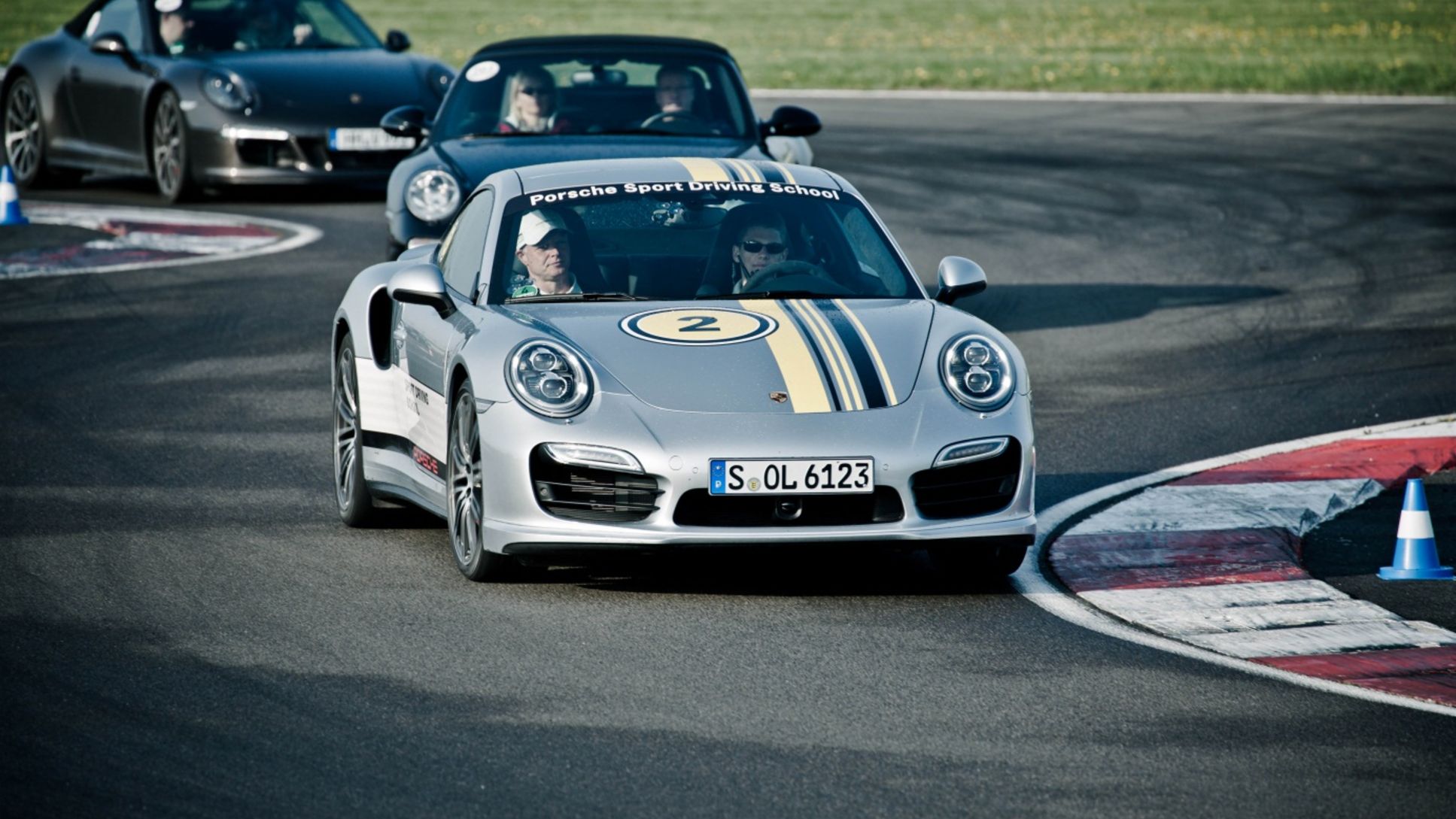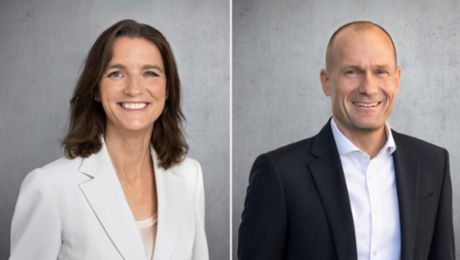It was the year 1974: Germany became football world champions in Munich for the second time and Helmut Schmidt took office as Chancellor in Bonn. But what about Zuffenhausen?
There the first 911 Turbo left the assembly line - a "madness on wheels", according to the press. And so Porsche started up its Sport Driving School so that owners of the high-performance sports car could also drive the car efficiently. At the first event on the Hockenheimer Ring, in-house engineers personally instructed the participants. It was a total success. As a result the offer was continuously expanded in the following years.
With the Porsche Sports Driving School in Spa or Le Mans
As you know, we love to keep up with traditions, especially those which trigger such strong emotions. Today, participants can live out their joy of driving in the different levels of on-road courses that are offered; they can also take on the challenges of off-road training courses; or - based on their individual training goals - they can choose one of the "special" training events that cover specific sub-areas of sporty driving such as 'drifting'. "In its current season, the Porsche Sport Driving School in Germany is offering around 30 driving events for customers at a number of training sites – including legendary race courses such as the North Loop of the Nürburgring, Spa-Francorchamps and Le Mans," says Catja Wiedenmann, Director of Porsche Driving Experience.
There are also courses on 14 other markets in Europe, the Americas, Asia and Oceania. Training levels are standardised world-wide, from "warm-up" for new entrants to sports cars through to "Master RS" which prepares drivers for entry into motor sport. "Besides improving participant driving skills, the aim of our offers is primarily to intensify ownership awareness for customers and highlight the fascination of sports cars," emphasises Oliver Hoffman, Head of Face-to-Face Marketing. About 1,700 customers took part in training events in 2013. "In 2014, we want to grow to 1,900 participants," says Sabine Sinn, Project Manager at the Porsche Sport Driving School.
Porsche instructors have many years of experience in motor racing
"We are particularly delighted by the rather large number of return participants who we welcome back every year." There are also one or two customers who visited the Porsche courses in the 1970s and 1980s – proof that these events nurture high customer loyalty. Around 100 Porsche instructors work at the school so that all participants can achieve their driving aims as well as possible. Besides kindling driving pleasure, the instructors also provide coaching in the sports car manufacturer's philosophy. In their main job, many of the instructors work in development, sales, testing or as test drivers and have many years of experience in motor racing.
Besides the offer for private customers, the Sport Driving School also offers events to companies or supports internal requests from Porsche. "Since 2013, we have been responsible for the internal Porsche project "Driver training"," says Catja Wiedenmann. Around 800 employees have been trained here in 2014 alone.
Consumption data
911 (Type 991): Combined fuel consumption: 9.0 – 8.2 l/100 km; CO₂ emission: 211 – 191 g/km
911 Turbo: Combined fuel consumption: 9.7 l/100 km; CO₂ emission: 227 g/km

